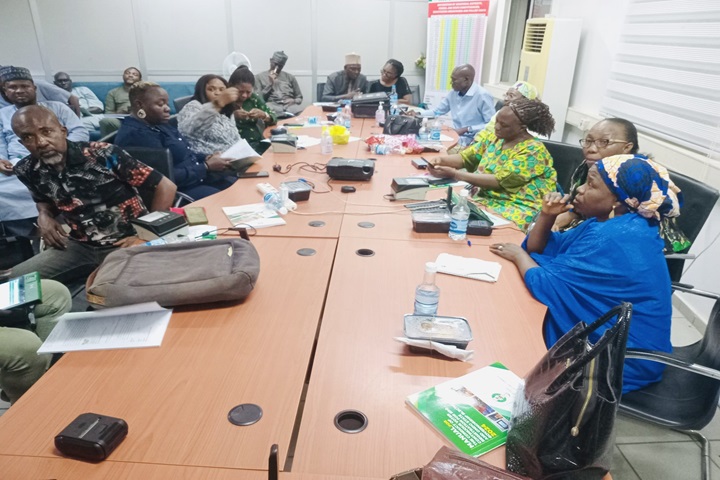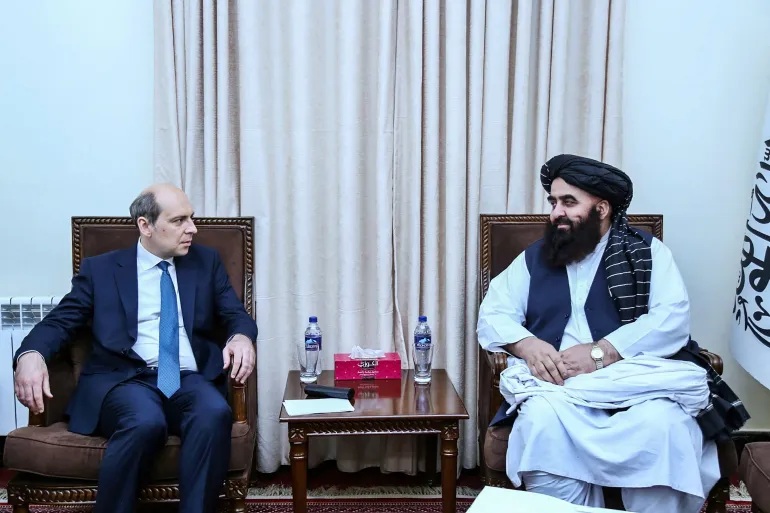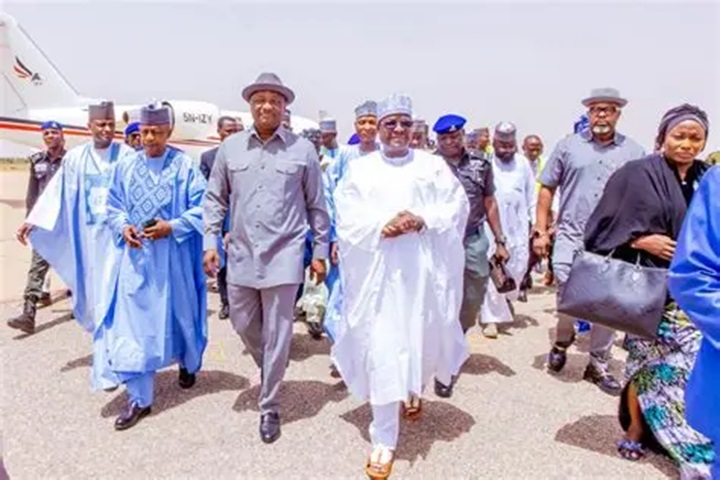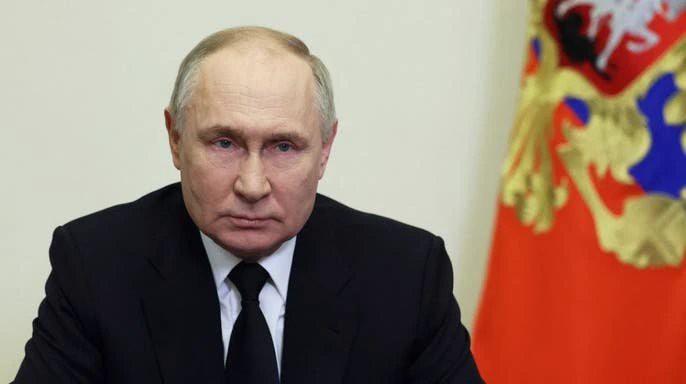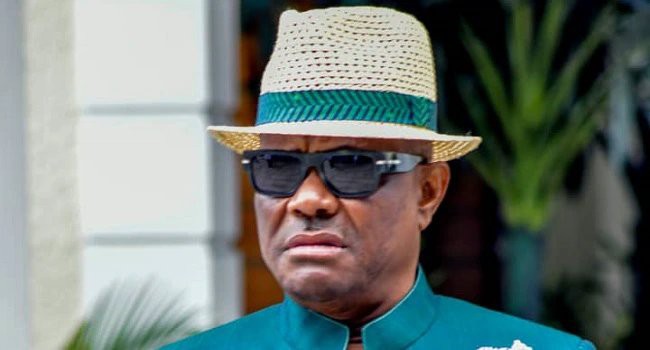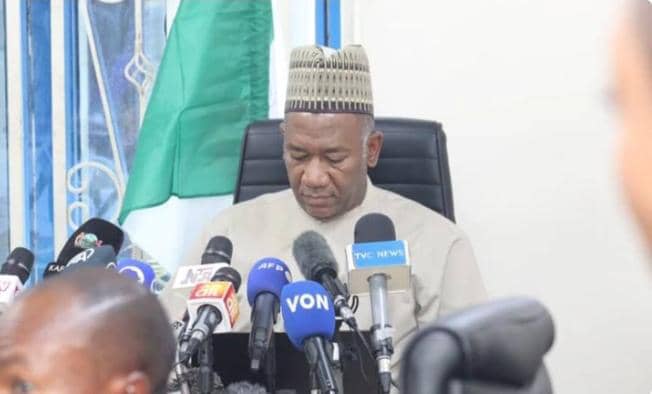Analysis
Why President Tinubu has to address protesters, hold Twitter Space with youths ~ by Law Mefor

The nationwide #EndHungerProtest, also known as the #EndBadGovernmentProtest, has officially begun and is sweeping the country, causing deaths and damage in its wake.
And there’s the worry that the worst might yet come. Due to the ethnic profiling that a president’s spokesperson brought into it, which targeted Igbos and their businesses, the Southeast states had to abstain.
By starting the Igbo-Must-Go (Ndigbo must leave Lagos and South West) campaign, some X users are also echoing the threat and ethnic profiling against Ndigbo in Nigeria, similar to what happened in Rwanda that resulted in ethnic cleansing.

The author, Dr. Law Mefor
An analysis of the protest thus far reveals a deficiency in preparation and synchronisation on the part of the protesters as well as the government, especially the police.
It is happening as though the protest organisers are just calling on Nigerians to protest without any real preparation or coordination, and the government and police would prefer to put an end to the protest than welcome it and use it to their advantage.
Even scarier is the fact that General Chris Musa, the Chief of Defence, had threatened that the military would step in if the situation got out of control or got worse and the police couldn’t handle it.
It is still heartbreaking to think back on what the army did at Lekki Tollgate at the EndSars protest in October 2020. Numerous protesters lost their lives in what many referred to as the Lekki massacre.
A recurrence of that dark past would not be desired by any patriotic Nigerian. Therefore, under no circumstances should the protesters or the police allow the protest to get so out of control that the military feels justified in getting involved.
Soldiers are not trained for riot control or civic upheaval. The soldiers shoot to kill and don’t use rubber bullets, unlike the police.
Furthermore, the Lekki Tollgate was the only location where soldiers were killed during EndSars in 2020.
As of right now, 31 states (excluding the five Southeast states) are experiencing simultaneous protests; this means that there are at least 31 flashpoints around the nation where protesters and the military may engage in confrontations with a high risk of fatalities.
“Any man’s death diminishes me because I am involved in mankind; therefore, never send to know for whom the bell tolls; it tolls for thee,” wrote poet and philosopher John Donne in one of his poems.
John Donne wrote on the subject of human connectedness, and one may rephrase it thus: “The death of one Nigerian diminishes all of us because we are all fellow Nigerians.”
An alarming number of Nigerians are losing their lives for avoidable reasons; they are being killed by terrorists, bandits, police mishaps, kidnappers, and a host of other preventable causes.
In such cases, the blood being wasted is pleading with God for retribution.
Without necessarily getting too theological, some of the country’s suffering stems from acts of savagery and widespread bloodshed, as well as, of course, the apparent greed and wickedness of leaders and some citizens who profit off the suffering of fellow Nigerians.
You may observe this in the food items that some Nigerians export to their neighbouring countries to make a kill rather than selling them to other Nigerians for a lower price.
That is capitalism devoid of a human face for you.
President Bola Tinubu, a remarkable protester himself, with the governors’ collaboration, is the one who has the best chance of addressing the protest and stemming the confrontation and its obvious severe repercussions.
The only state governors who have so far addressed the protesters are Godwin Obaseki of Edo State, Sanwo-Olu of Lagos State, and Simi Fubara of Rivers State.
Also, the protesters have been addressed by only the Commissioners of Police for Edo and Lagos State. The macabre dance appears to be entertaining the rest.
Governor Chukwuma Soludo of Anambra State has also launched the ‘Farm to Feed Campaign’ to return Ndi Anambra to the farms as the state’s response to the hunger protest ongoing in the country.
Governor Chukwuma Soludo wants Ndi Anambra to grow what they eat and eat what they grow in 12 months.
The president knows that protest is an essential ingredient of democracy and democratic governance and therefore shouldn’t stifle the ongoing one.
To present his side of the story, the president needs to speak with the protesters as well as all Nigerians without further delay.
Although President Tinubu came into office and met a battered economy, things have only gotten worse since he came. There are very few indications that things will improve if the key policies are not revised.
It is tenable to argue that policies have gestation periods and that the Tinubu government’s programs will take some time to take effect and produce the intended outcomes.
However, while acknowledging that policies take time to implement, we also need to remember that some poorly implemented good policies can only lead to catastrophe if progress is too far in error.
The withdrawal of fuel subsidies and the floating of the naira are two crucial economic policies that have released headwinds that have crushed the economy, driven inflation to an all-time high, imposed stagflation, and unleashed unparalleled hunger in the nation.
These policies alone are the reason why things have become worse. The withdrawal of fuel subsidies without proper planning was terrible enough, but what is seriously harming the economy more than fuel subsidy removal is the simultaneous inconceivable tragedy of floating the naira.
Nigerians are not seeing the evidence that these policies are rising up the J curve after the initial depression, even though they have been in place for only a year and a half.
Thus, it is necessary to revisit the two policies and include them among the concessions the president has to make to the protesters and Nigerians.
Also, President Tinubu has to interact with the youth by hosting Xtinubu/Twitter space, much like President William Ruto of Kenya did after a comparable tax protest in his nation.
The president has to take this chance to share with the young Nigerians what he met upon the assumption of office and the work he is doing.
The majority of Nigerians are unaware that the previous government sold the country’s future crude oil for loans and cash, leaving Nigeria insolvent.
This means that even if the country exports roughly 1.5 million barrels per day, the amount of crude that is available to the government for foreign exchange earnings may not be up to 500 thousand barrels per day.
The payment of debt and commitments to IOCs that have joint venture agreements with the NNPCL takes about 70% of export earnings.
Therefore, Mr. President, it would be better to take this opportunity and identify with the Nigerian people than to continue the deafening silence.
YiThere is a need to provide some real concessions, which need to include drastic cuts in the cost of governance and the extravagance of government officials.
Nigerians who are protesting will reciprocate if the President takes these vital actions.
Dr. Law Mefor, an Abuja-based forensic and social psychologist, is a fellow of The Abuja School of Social and Political Thought; drlawmefor@gmail.com; Twitter: @Drlawsonmefor.
For Diaspora Digital Media Updates click on Whatsapp, or Telegram. For eyewitness accounts/ reports/ articles, write to: citizenreports@diasporadigitalmedia.com. Follow us on X (Fomerly Twitter) or Facebook



